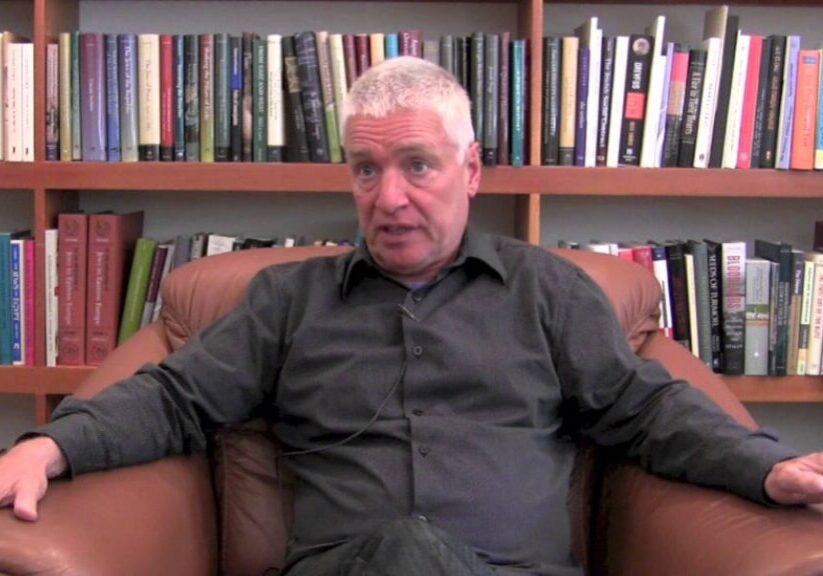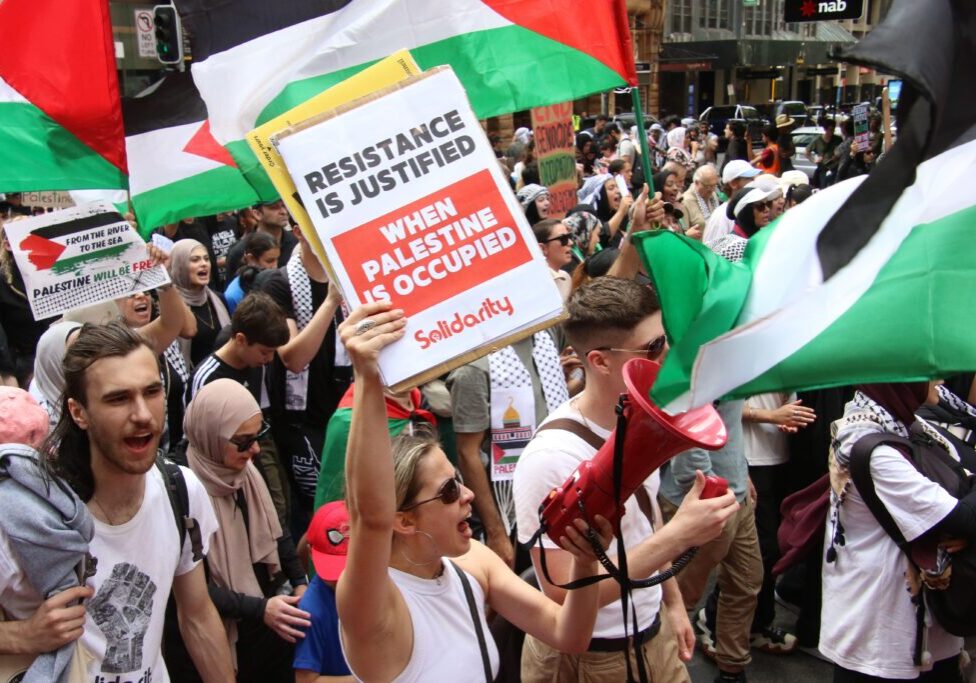Australia/Israel Review
Europa Europa: The OXFAM Incident
Feb 25, 2014 | Douglas Davis

Douglas Davis
After all the gossip and speculation it’s time to come clean: Scarlett Johansson and I are more than just good friends. Much more. Yes, we have shared moments of intimacy – not, alas, together, or even at the same time. But we are both alumni of Oxfam, that billion-dollar arbiter of humanitarian aid, political profundity and universal morality. It doesn’t matter that we graduated almost half a century apart. It doesn’t even matter that we’ve never actually met. Or that she doesn’t know I exist. We have both experienced an “Oxfam Incident”.
Last month, Oxfam announced that Scarlett Johansson’s support for an Israeli company operating in a Jewish settlement was incompatible with her continued role as an Oxfam Ambassador. She was faced with a stark choice: continue her association with Oxfam or support SodaStream, the Israeli fizzy drink manufacturer with a factory in Mishor Adumim, just outside Jerusalem. Ms Johansson chose SodaStream.
In a statement, the Hollywood actress declared that she and Oxfam have “a fundamental difference of opinion in regards to the boycott, divestment and sanctions movement” while adding she was, “very proud of her accomplishments and fund-raising efforts during her tenure with Oxfam.”
The SodaStream plant employs about 500 Palestinians from east Jerusalem and the West Bank alongside a similar number of Jewish employees. The Palestinians, who support an estimated 10 family members each, are employed on the basis of equal pay, social benefits, promotion opportunities and rights with their Jewish colleagues.
In a debate on “Newsnight”, the BBC’s flagship current affairs program, SodaStream CEO Daniel Birnbaum insisted that his company was not in the business of financing settlements. On the contrary, he said, “we are part of the Palestinian economy”, where unemployment is running at about 40%. “And the inconvenient truth,” he added, “is that we are operating with the agreement of the Palestinian Authority.”
But Ben Phillips, the Policy Director of Oxfam, was unmoved: “This is not about SodaStream or celebrities. It’s about settlements, which impoverish the Palestinian people.” SodaStream must go, he said, even if that means plunging 500 Palestinians into unemployment and 5,000 into poverty. As far as Oxfam is concerned, it seems, Palestine can only be Palestine when it is judenrein.
When I arrived in London, a deracinated refugee from apartheid South Africa, poor in cash but rich in far-left ideology, I was ripe for a job at Oxfam. I moved to Oxford and settled into Oxfam’s press office, effectively the spokesman of the organisation. It helped that I did not think of myself as a Jew, and no one else did either.
My South African credentials offered instant access to far-left circles in Oxford, but it bothered me that my new-found comrades, mostly at the university, liberally peppered our conversations with casual, gratuitous antisemitism. The Jews, it seemed, were at the root of the world’s ills.
But my “Oxfam Incident” came one summer’s evening when a senior Oxfam executive invited me to dinner at his sumptuous home in the rolling Oxfordshire countryside. He was cultured, brilliant and cool. Every inch the top Foreign Office diplomat, his previous calling. Before dinner, he suggested we take drinks on the lawn. As an afterthought, he asked the butler to bring out his portable radio so that we could listen to the news. It was, after all, the first day of the Six Day War.
The BBC faithfully reported claims by the Israelis that they had destroyed the air forces of Egypt and Syria on the ground. Then, the newsreader intoned the Arab claims that they had inflicted extensive damage on the Israeli army; that Egyptian tanks were now 25 kilometres from Tel Aviv, and advancing.
My host lost his cultivated cool. His elderly body shot into the air, fists pumping at the skies: “Now the Jews are going to get it… Now they’re going to get it.” Remember, Israel occupied no territories, nor had it constructed a single settlement. There could be only one explanation for his jubilation: the prospect of Israel’s imminent destruction. When he recovered his composure, he raised his glass and beamed at me: “Wonderful news. Simply wonderful.” I stared back, shocked, not knowing how to respond. To my shame, I said nothing.
His reaction was more or less typical of the culture I encountered among the loony left, which perceived Jews as arrogant and pushy, but regarded determined Palestinian “resistance” as principled and heroic. My own displacement – from the far-left and Oxfam – was now more or less complete.
But the madness of the Sixties never went away. On the contrary, it triumphed. The past half-century has witnessed Europe’s traditional sources of authority – political and church leaders – in full retreat, ceding the moral high ground to a bunch of unelected, unaccountable NGOs, like Oxfam. They set the agenda now.
I doubt whether Oxfam would have been much exercised if SodaStream was owned by, say, Jordanians, Egyptians or Saudis. Rather, I believe, they have chosen to invest a large chunk of their resources in advocating a boycott of the company because it is Jewish.
Tags: Anti-Zionism






